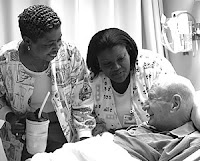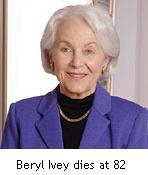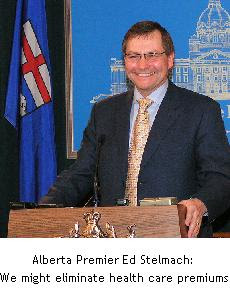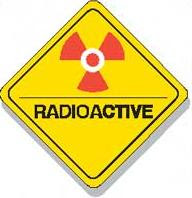 Originally designed as a feeder school for the University of Toronto, York University has managed to break away, except when it comes to medical students who are still forced to leave after completing their undergraduate degrees.
Originally designed as a feeder school for the University of Toronto, York University has managed to break away, except when it comes to medical students who are still forced to leave after completing their undergraduate degrees.
According to York University’s mission statement: “We promise excellence in research and teaching in pure, applied and professional fields.”
Since York’s founding in 1959, however, a strong emphasis has been placed on the arts and fine arts, while future doctors have moved on to other schools for further education.
Canadian universities do not have enough medical schools to keep up with the growing need for professional doctors.
Only four medical schools have been created in Canada since 1959, and only one since 1968. During this same time, the population of Canada grew 178 percent from 18 million to 32 million.
According to the Canadian Medical Association Journal, the average general practitioner in Canada works 51.4 hours per week.
From 1979 to 2003, the average Canadian workweek dropped from over 34 hours per week to around 33 hours per week.
Despite doctors working over 50 hours per week, many Canadians still have a hard time trying to find family doctors and wait times at hospitals have increased dramatically.
Meanwhile, Canada has seen a reversal of the brain drain of the mid 1990s, which saw its peak with around 1.5 percent of Canadian doctors leaving Canada to work in the United States, according to the Canadian Institute for Health Information.
Fortunately, 2006 was the third year in a row that saw a brain gain, with 238 doctors returning from abroad and only 207 leaving.
This only represents 0.05 percent of Canada’s 62,307 practicing physicians, which is not nearly enough of an increase to significantly affect hospital wait times, overworked doctors or the lack of family physicians.
The average age of doctors in Canada continues to increase, reaching 49 in 2006, with only 23 percent of doctors in Canada being under 40 and 19 percent being over 60.
The need for young doctors has never been greater, and in order to fill this need Canada needs more medical schools.
Most of the schools York competes against, including the University of Toronto, McMaster University, the University of Western Ontario and the University of Ottawa, all have quality medical schools.
York has managed to compete with and often surpass the big established programs with its business and law faculties, now it needs to do the same with a medical school.
After all, shouldn’t an interdisciplinary university strive to give their students everything that is possible, instead of simply taking the easy route and sticking to what they know best?
Source: Excalibur
Wednesday, January 2, 2008
York University needs to improve Medical Education
Posted by
Guy Derla
at
4:45 PM
0
comments
![]()
Tags: Canada, Canadian health care, Doctor, family doctor, Medical education, Ontario, physicians, U.S. Canadian Institute for Health Information, York Universtity
Tuesday, January 1, 2008
Supervisor appointed in Brampton Civic Hospital
 Ken White, former CEO at Trillium Health Centre in Mississauga, will at least spend the next six to nine months, coming up with an action plan to improve communication between the hospital and the community, ensure proper staffing and reduce wait times in the emergency ward.
Ken White, former CEO at Trillium Health Centre in Mississauga, will at least spend the next six to nine months, coming up with an action plan to improve communication between the hospital and the community, ensure proper staffing and reduce wait times in the emergency ward.
Amid reports that a patient had the wrong leg operated on at Brampton Civic, Ontario's first public-private hospital, Health Minister George Smitherman has named the supervisor who will look into problems at the new facility.
 "People in the community should expect more answers to the questions raised ... What we see here is evidence of the need to do better," Smitherman told a press conference at the Brampton site of the William Osler Health Centre yesterday.
"People in the community should expect more answers to the questions raised ... What we see here is evidence of the need to do better," Smitherman told a press conference at the Brampton site of the William Osler Health Centre yesterday.
Smitherman took the rare step of appointing a supervisor to restore public confidence in Brampton Civic after the deaths of Harnek Sidhu, 52, of pancreatitis and Amarjit Narwal, 42, of a stroke, sparked a huge community protest in early December.
Then, on Christmas Day, 72-year-old Amar Kaur Brar complained doctors cut open her right leg by mistake when she went to hospital for surgery on her fractured left leg.
Although he had been an investigator at Brampton Civic for about a year, helping it to ramp up to its opening on October 28th, White said he was "not at all familiar" with concerns raised by the community about a shortage of staff, unduly long waits in emergency and a lack of beds.
"It's very sad there's all kinds of these misadventures in health care happening across Canada," White told reporters in an interview after the press conference.
Smitherman blamed "mischief makers" and alluded to persistent negative media reports about problems at the hospital since it opened as being a factor in attracting staff to work at the centre.
Some of those reports have been "pretty far off the mark," he said.
Brampton Civic, which replaced Peel Memorial Hospital, "overnight gained 100 beds, which is unheard of in health care" today, said Smitherman.
However, he did acknowledge staffing challenges.
Source: The Star
This is a video from CBC News concerning the appointment of Ken White
Related Articles:
Brampton Civic Hospital operates on wrong leg
Brampton Civic hospital has cost $340 million more than planned
Brampton Civic Hospital under fire
Posted by
Guy Derla
at
9:09 AM
0
comments
![]()
Tags: bed shortage, Brampton, Brampton Civic Hospital, communication, George Smitherman, health care, Ontario, Peel Memorial Hospital, public-private, wait times, William Osler Health Centre
Monday, December 31, 2007
The Ottawa Hospital starts testing overnight patients for superbugs
The Ottawa Hospital will begin testing overnight patients for two virulent strains of bacteria beginning in January to help combat infections and deaths.
Overnight patients will be screened for methicillin-resistant Staphylococcus aureus (MRSA) and vancomycin-resistant enterococci (VRE), two strains of bacteria that, along with other hospital-acquired superbugs, kill thousands of Canadians annually.
The mandatory screening follows a pilot project the hospital conducted in the summer, which found that certain members of the patient population should but weren't screened for the drug-resistant bacteria, hospital spokeswoman Allison Neill said.
The Ottawa Hospital will be the second hospital to adopt universal screening for these two superbugs. Toronto's University Health Network initiated testing for these two bacteria in the fall.
If patients test positive for either bug, they will be isolated in private hospital rooms, the hospital said.
In the six months ended September 30th, there were 82 cases of hospital-acquired MRSA at the Ottawa Hospital.
In the same period, there were 18 cases of hospital-acquired VRE at the hospital.
Source: CBC
Children's Hospital in London, Ont., to recruit 4 new heart doctors
 An all-out effort will be made in 2008 to recruit at least three new children’s heart doctors to London, the head of the city’s hospitals said.
An all-out effort will be made in 2008 to recruit at least three new children’s heart doctors to London, the head of the city’s hospitals said.
“It is very, very important to me to sustain Children’s Hospital and therefore we are going to devote a lot of time and energy to try and make this happen,” said Cliff Nordal, president of both London Health Sciences Centre and St. Joseph’s Health Care.
Both of London’s children’s heart doctors, Dr. Dion Pepelassis and Dr. Ilan Buffo, have resigned to accept positions at Winnipeg Children’s Hospital at the end of June.
"London needs a minimum of three of the specialists to provide a sustainable service and will try to hire four by the end of 2008, " Nordal said.
“We will be looking as well at international medical graduates that are in training in Canada.”
Nordal called the loss of the two children’s heart specialists “a blip” in an otherwise successful drive to recruit health care professionals to London.
Faced with the closure of hospital beds because of a lack of nurses, London Health Sciences Centre set a target last February to hire 450 new nurses.
To date, the hospital has recruited about 340, allowing it to reopen all of the closed beds.
“We expect by the end of March we will reach our target,” Nordal said.
The closed beds contributed to extended waits for patients in the city’s emergency departments and led to the cancellation of some surgeries.
"Not all the problems will be solved with the beds reopened," Nordal said.
The hospital still has difficulties providing enough beds for acute care because 40 to 70 beds are occupied by people waiting for placement in long-term care facilities or back into the community.
The Ontario government announced it will expand the number of long-term care beds in the London area by 600, but those beds won’t be available until late 2010.
St. Joseph’s Health Care has proposed to the Health Ministry that it opens 50 beds at the Parkwood Hospital site, at least on a temporary basis, to reduce the pressure.
“That has not been approved yet, but we are hopeful that that will be considered as at least an interim step,” Nordal said.
Another challenge that will persist in the face of rising cancer rates is the wait times for cancer scans and therapies.
In the past year, the number of people receiving cancer therapy treatments at LHSC grew by 15 percent.
“It is just a burgeoning amount of care required. It spills over into surgery, it spills over into imaging and as a result those are the areas we are having our greatest wait list challenges.”
“Those will be areas we will try to tackle in the coming year, trying to get down to the provincial average where possible,” Nordal said.
Source: The London Free Press
Related article:
Two children's heart doctors for Winnipeg Regional
Posted by
Guy Derla
at
1:06 PM
0
comments
![]()
Tags: cardiac, government, heart surgery, hospital, London Children's Hospital, London Health Sciences Centre, nurses, nursing, nursing shortage, Ontario, registered nurse, Winnipeg
Sunday, December 30, 2007
Doctors of Ontario urge smokers to quit smoking in 2008
 Ontario's doctors are encouraging those who smoke to make 2008 the year they quit.
Ontario's doctors are encouraging those who smoke to make 2008 the year they quit.
Doctors and other primary care providers have been working with patients to help them develop a plan to quit smoking and can help increase the chances of success.
"Doctors understand that smoking is a serious addiction and we want to provide patients with the support they need to become smoke-free," said Dr. Ken Arnold, President-elect of the Ontario Medical Association (OMA).
"The beginning of a new year is always a good time to renew your commitment to improving your health and to make the decision to quit smoking for good."
The OMA is offering the following tips for individuals who are looking to quit smoking:
- If you smoke, avoid exposing others (especially children) to second hand smoke
- Never smoke in a car with children present
- Nicotine Replacement Therapies, like nicotine gum and the patch, will help you deal with the cravings. Keep nicotine gum with you at all times. It's available over the counter at pharmacies
- Remove ALL cigarettes and ashtrays in your home and car
- Regular exercise can help calm you down and relieve tension
- Make an appointment to see your doctor to discuss how they can help
- Make a resolution that you're going to have a healthy and smoke-free 2008
One in every four deaths from heart attacks and strokes in Canada is caused by smoking, and tobacco use causes about 30 percent of all cancers in Canada and more than 85 percent of lung cancers.
In Ontario and each year 16,000 patients die prematurely because of smoking.
"Make a commitment to be smoke-free in the New Year to keep you, and those around you, healthier in 2008," said Dr. Arnold.
"Everyday doctors treat patients whose health is compromised from smoking, which is why we have been advocating so strongly to protect Ontarians from tobacco use and second-hand smoke."
Editor's opinion:
"Does anyone know anyone who quit smoking with the 'help' of nicotine patches or gum?
You could get addicted to those instead and they don't solve the problem anyways.
Nicotine, the main addictive substance in tobacco products, is processed by the human body in a few hours, hence the need to light up a new one after approximately and averagely an hour.
If a smoker quits smoking cigarettes their body is in complete control.
Many smokers quit smoking cigarettes daily but they never experience any physical problems.
Even chain smokers hardly ever wake up in the middle of the night to 're-fuel', unlike a Heroin or Cocaine addict who often wake up at night to feed the addiction.
A smoker can simply spend a couple of hours watching a movie in a theater or being on an airplane, without having a cigarette and without shaking, screaming and sweating.This shows clearly that smoking cigarettes is not at all a physical addiction!
There are always smokers who claim that they cannot sit for such long hours without cigarette while I'm sure they never even tried it or are simply lying about it, it's called addictive behavior.
This, in my opinion, only tells us that smoking is a mental addiction.
Therefore quitting smoking doesn't require products that only prevent your body to be in a state of total nicotine neutralness as a starting point to deal with the more important job: the bending of the lies your telling yourself in your mind why you shouldn't quit or just not yet.
Take it from an extreme, 2-packets-a-day, EX-smoker since 7 or 8 years (don't really remember!).
There is another painless, effortless, inexpensive and effective way to quit, since it deals with the mental and not the physical part of the addiction.
Believe it or not, it only requires to read a very amusing book, written by Allen Carr, called "The Easy Way to Stop Smoking"
It was the most valuable, yet in-expensive present I ever gave myself."
Source: CNW Group
Posted by
Guy Derla
at
9:46 AM
0
comments
![]()
Tags: addiction, Canada, Doctor, doctors, family doctor, health, heart attack, lung cancer, New Year resolution, OMA, Ontario, quit smoking, smokers, smoking
Saturday, December 29, 2007
Canada recruits hundreds of Practical Nurses from Jamaica
 Hundreds of Jamaicans were recruited in October to work in health care, the construction and hospitality service sectors in British Columbia through the Ministry's Canadian Overseas Employment Programme.
Hundreds of Jamaicans were recruited in October to work in health care, the construction and hospitality service sectors in British Columbia through the Ministry's Canadian Overseas Employment Programme.The group included mainly certified practical nurses, but also a group of pipe-fitters, welders, and carpenters.
Over the years, Jamaicans have been recruited to work in Ontario, Montreal, Quebec and New Brunswick on the Overseas Farm Work Programme but this is the first time that employees are being requested for the health care, hospitality and construction sectors.
Canada will be recruiting approximately 2,000 practical nurses by the end of 2008.
As part of the recruitment programme, there is a partnership between the Okanagan College and the HEART/NTA, to ensure the certification of workers so that they will be ready to go directly into the workforce once they arrive in Canada.
Source: JIS
Posted by
Guy Derla
at
9:55 PM
0
comments
![]()
Tags: British Columbia, Canada, Canadian Overseas Employment Programme, certification, health care, Jamaica, LPN, Montreal, New Brunswick, nurses, nursing, nursing shortage, Ontario, Quebec, recruiting
Friday, December 28, 2007
Revolutionary new Hypothesis about Human Memory
When it comes to human memory, it seems that Canadians are endowed with a special gift of owning the right to unravel its mystery.
The currently pursued hypothesis is based on the proposals made by Donald Hebb, a psychology professor from Canada.
Recently Dr. Kunjumon Vadakkan, also a Canadian, has come up with a new hypothesis named as “Semblance Hypothesis”.
as “Semblance Hypothesis”.
Back in 1949, Professor Hebb proposed that when two neurons fire together then the junction between them, named synapse, undergoes changes.
Since then scientists all around the globe were struggling more than half a century to put together these pieces of synaptic change puzzle to find answers for memory.
Even though experiments conducted thereafter proved changes in synapses, sufficient mechanism for memory was not found.
Alternative proposals for the mechanism of memory also couldn’t find answers.
Scientific nature of memory requires theoretical suggestions similar to that in Physics, followed by laboratory investigations to test it.
Dr. Vadakkan now says that our memory is from “systematic functional illusions” occurring at the shared post synapses and exneurons.
The physician turned biochemist from Kerala state in India came to Canada after spending some years of research in India.
He has received a PhD in Physiology and Neuroscience from the University of Toronto.
Dr. Kunjumon Vadakkan's brand new “Semblance Hypothesis” about the human memory is now published as a book
Read the full explanation about the hypothesis here
Posted by
Guy Derla
at
11:50 AM
1 comments
![]()
Tags: Canada, Canadian health care, hypothesis, memory, Ontario, physician, Physics, Scientist, Toronto, University of Toronto
Almost 80% of Canadians wary of Plastic Surgery
 Almost eight out of ten Canadians would not have a face lift, droopy eyelids fixed or unwanted fat suctioned from their body, even if they could afford it.
Almost eight out of ten Canadians would not have a face lift, droopy eyelids fixed or unwanted fat suctioned from their body, even if they could afford it.
This is the conclusion of the latest poll about plastic surgery, conducted in the wake of several high-profile cosmetic surgery deaths.
The Ipsos Reid survey for CanWest News Service and Global National found only 20 percent of 1,000 adults surveyed agreed with the statement, "If I had the means and ability, I'd have cosmetic surgery done."
Seventy-nine percent disagreed and one percent didn't know or refused to answer.)
Similar surveys in the United States suggest approval of such procedures is at an all-time high, with more than half of Americans in favour of surgical enhancement.
"I think that, with what's happened in the news in Canada, people here are a little bit more worried about plastic surgery," says Frank Lista, medical director and founder of the Plastic Surgery Clinic in Mississauga, Ontario, and past president of the Canadian Society of Aesthetic (Cosmetic) Plastic Surgery.
Last September, 32-year-old Krista Stryland, a real estate agent and mother of one, died in a hospital emergency room following a liposuction procedure performed by a family doctor who advertised as a cosmetic surgeon.
Stryland's death raised fresh alarms over untrained and unqualified doctors in Ontario performing cosmetic surgery and the increase in risky procedures being done in private "corner store" clinics.
Read the rest of the story here
Posted by
Guy Derla
at
8:46 AM
0
comments
![]()
Tags: Canada, Canadian Society of Aesthetic Surgery, family doctor, Institute of Cosmetic Surgery, Ontario, plastic surgery, private clinic, surgery, survey, U.S.
Thursday, December 27, 2007
Benefactress to Canadian Health Care Beryl Ivey dies
 Beryl Ivey, an iconic philanthropist who for decades supported education, health care and the arts across Ontario and beyond, died on Christmas day at the age of 82.
Beryl Ivey, an iconic philanthropist who for decades supported education, health care and the arts across Ontario and beyond, died on Christmas day at the age of 82.
Ms. Ivey suffered a heart attack Sunday and was hospitalized in Toronto.
She died there Christmas morning, three days shy of her 83rd birthday.
Ms. Ivey's son Richard said that his mother was in "vintage form" right up until her death.
As news of the death slowly spread, praise poured in for Ms. Ivey, who, along with her husband, donated an estimated $150-million to various causes through the Ivey Foundation.
"This city and province and country has lost a great Canadian," said Tony Dagnone, former chief executive of the London Health Sciences Centre.
At the University of Western Ontario, whose business school now bears the Ivey name, the effects of her generosity cannot be overstated, UWO president Paul Davenport said.
A private funeral will take place in London on Friday and a memorial will be held at a later date.
Born Beryl Nurse in 1924 in Chatham, Ontario, she was a celebrated track star when she arrived at UWO in 1943.
She married Dick Ivey, whom she met two months into her first year at UWO.
Dick's father, Richard G. Ivey, incorporated the Ivey Foundation in 1947.
Beryl, however, is credited with the businesslike approach to philanthropy the family adopted in the 1970s.
In June, she was named to the Order of Canada.
Her friend Bill Brady, who called Ms. Ivey "a remarkable force" - said she was "no pushover" when it came to cash.
"You had to make a strong case for financial support.
You had to prove it was worthwhile. I can't think of another philanthropic family who did the kind of research they did."
Posted by
Guy Derla
at
9:21 AM
0
comments
![]()
Tags: Beryl Ivey, Canadian health care, death, health care, heart attack, hospital, London Health Sciences Centre, Ontario, Order of Canada, philanthropy, Toronto
Friday, December 21, 2007
Two children's heart doctors for Winnipeg Regional
 The Winnipeg Regional Health Authority has successfully recruited two children's heart doctors from London, Ont.
The Winnipeg Regional Health Authority has successfully recruited two children's heart doctors from London, Ont.
WRHA spokeswoman Heidi Graham confirmed doctors Dion Pepelassis and Ilan Buffo of the Children's Hospital of Western Ontario were "aggressively recruited" to come work at Winnipeg's Children's Hospital, which has only one pediatric cardiologist for a population of 1.2 million.
The London doctors will leave their positions in Ontario at the end of June. The two are then expected to start in Winnipeg next summer, said Graham.
The move has left the Southwestern Ontario region with no such specialists for 450,000 kids.
"As every other jurisdiction does when there's a shortage, we recruit," said Graham.
"Manitoba has been short two cardiac specialists since this past summer," she said. The WRHA has been searching for specialists across Canada and the U.S. for months.
The two heart doctors weren't talking yesterday, but the London Health Sciences Centre's senior medical director for women and children said he believes they were offered "a very attractive overall package" in Winnipeg.
Posted by
Guy Derla
at
10:33 AM
0
comments
![]()
Tags: Doctor, health care, heart, heart disease, hospital, Manitoba, Ontario, recruiting, Winnipeg
Thursday, December 20, 2007
Victorian Order of Nurses protest in Hamilton on Friday
 Tomorrow, Ontario Nurses' Association (ONA) registered nurses employed by St. Joseph's Home Care, will join their President, Linda Haslam-Stroud, RNs and other unionized nurses to protest the competitive bidding process that will result in the loss of more than 200 jobs.
Tomorrow, Ontario Nurses' Association (ONA) registered nurses employed by St. Joseph's Home Care, will join their President, Linda Haslam-Stroud, RNs and other unionized nurses to protest the competitive bidding process that will result in the loss of more than 200 jobs.
The ONA home care RNs will join OPSEU members in Hamilton as their employers, St. Joseph's Home Care and the Victorian Order of Nurses, are briefed by the local Community Care Access Centre on why they have been eliminated from the competitive bidding process to provide home care services for area residents.
ONA represents the 59 RNs who work for St. Joseph's and who have provided home care services for decades.
The Association is urging its RNs to consider nursing positions outside of the community sector unless the government guarantees successor rights that would provide job security for nurses, and most importantly, continuity of care for the residents of the community.
ONA is the union representing 53,000 registered nurses and allied health professionals working in Ontario hospitals, long-term care facilities, public health, the community and industry.
The protest will take place tomorrow at the Courtyard Marriott Hotel in Hamilton.
Source: CNW Group
Related article:
Victorian Order of Nurses to be made redundant
Posted by
Guy Derla
at
2:29 PM
0
comments
![]()
Tags: Hamilton, home care, nurses, ONA, Ontario, OPSEU, protest, public health, RN, St. Joseph's Home Care, Victorian Order of Nurses
Alberta might eliminate health premiums
 It's for the first time Alberta Premier Ed Stelmach is talking about the possibility of eliminating health care premiums as part of his party’s next election platform.
It's for the first time Alberta Premier Ed Stelmach is talking about the possibility of eliminating health care premiums as part of his party’s next election platform.
Even though Alberta has been awash in surplus cash for years, the Progressive Conservative government has resisted the idea of dropping health premiums, which only exist in three provinces.
But now Stelmach is signaling that a policy change may be in the works for premiums, which cost $1,056 per year for families and $528 for singles.
Earlier this week Ontario's premier McGuinty announced that despite soaring government revenues, health tax is not going to be scrapped for Ontarians. (read related article here)
“The revenue is close to $1 billion,” he told The Canadian Press in a year-end interview.
“There are a number of ideas coming forward from people that are looking at developing policy positions for the campaign. But we’re far from making any kind of decisions.”
Health Minister Dave Hancock said he has been talking to government caucus members for months about how the province can eliminate or at least reduce health premiums for some people.
Hancock says he would like to see the province create incentives for people to lead healthy lifestyles. "Whether we collect it as a premium or we collect it as tax, we should give people credit for the things that they do to remain healthy," he said Wednesday in an interview.
The message to Albertans would be: "We can take health-care premiums off, but you have to do something for it."
“That’s what I’m promoting, that we take a look at how you can earn your premium back by doing some pre-screening tests, by engaging in health activity, those sort of things.”The group Friends of Medicare was delighted to hear that the government appears to have had a change of heart over health premiums, which are also charged in Ontario and British Columbia.
“This is the time to get rid of these premiums. We’ve never been wealthier,” said Suzanne Marshall, executive director of the Edmonton-based lobby group.
Edmonton Sun
Posted by
Guy Derla
at
8:43 AM
0
comments
![]()
Tags: Alberta, British Columbia, Canadian health care, Edmonton, health care, health tax, McGuinty, Medicare, Ontario
Wednesday, December 19, 2007
41 Employees will be losing their jobs at Bridgepoint Community Rehab (B.C.R.)
 On November 29, 2007 therapy and clerical staff of B.C.R. were informed of the Board of Directors decision, that they would not renew their contract to provide home rehabilitation services with the Toronto Central Community Care Access Centre.
On November 29, 2007 therapy and clerical staff of B.C.R. were informed of the Board of Directors decision, that they would not renew their contract to provide home rehabilitation services with the Toronto Central Community Care Access Centre.
As a result of this decision, 41 employees, members of Canadian Office and Professional Employees Union, Local 550 will be losing their jobs as of March 28, 2008.
Since 2001 B.C.R. employees have been providing therapy services in the home to patients/clients in the Greater Toronto area, including East York, such as Physiotherapy, Speech Language Pathology, Social Work and Occupational Therapy.
B.C.R.'s decision not to bid on the next request for proposal (RFP) for therapy services in Toronto, will mean that these services will as of April 01, 2008 be subject to the RFP bidding process, and will ultimately be provided by a different service provider.
This change in service provider will result in the disruption and continuity of care to approximately 40,000 patients/clients visits a year.
This decision by B.C.R. will also have a major impact on the lives of the 41 B.C.R. employees, who will be losing their jobs as of March 28, 2008, and will no longer have access to health and welfare benefits, HOOPP, paid vacations, job security, etc as a result of B.C.R.'s decision to not engage in the bidding process for therapy services provided by the Toronto Central CCAC.
This will lead to the loss of experienced and long service community therapists.
The Ontario Government has mandated the provision of Home Care.
CNW Group
"Where is the government's support for its front line professional workers that provide this service in Toronto?"
Posted by
Guy Derla
at
12:21 PM
0
comments
![]()
Tags: Bridgepoint Community Rehab, Bridgepoint Health, lay off, Ontario, RFP, Toronto
Dangerous drugs still prescribed to seniors
Doctors are still prescribing dangerous drugs to seniors, despite government warnings.
Over two years ago was reported, that more than a million seniors were prescribed atypical antipsychotics. Atypical antipsychotics are specific kinds of antipsychotic drugs. They are considered by many experts to be ineffective or even dangerous for elderly patients.
Health Canada followed up with warnings pointing to the drugs' side effects according to 13 scientific studies, which included a 60 percent greater risk of death in seniors who were taking the drugs than in patients taking placebos.
It also warned that elderly patients taking atypical antipsychotics were almost twice as likely to die from side effects such as heart failure.
In its advisory, Health Canada requested that the drugs'  manufacturers include a warning describing the risk in the safety information sheet provided along with the drugs, and that health care providers refrain from relying too much on the drugs to treat dementia.
manufacturers include a warning describing the risk in the safety information sheet provided along with the drugs, and that health care providers refrain from relying too much on the drugs to treat dementia.
Atypical antipsychotics are drugs such as Risperidone (Risperdal), Quetiapine (Seroquel), Olanzapine (Zyprexa) and Clozapine (Clozaril).
Many of these types of drugs have never been tested on seniors.
They are intended to treat severe mood disorders, symptoms of schizophrenia and bipolar disorder in adults under 65.
A new investigation has revealed that the number of prescriptions of these drugs for seniors actually increased in spite of and after the Health Canada warnings.
They shot up in six provinces, including in Ontario and Quebec.
In some cases, they increased by 40 percent, according to sales data provided by IMS Health, a business intelligence and strategic pharmaceutical and health-care consulting firm.
Read the rest of CBC's story here
Editor's opinion:
"Hmm, I wonder if the drug industry with its incentive programs has anything to do with it..................."
In Newfoundland and Labrador an initiative for drug use among seniors has just been announced last week:
New program to help seniors taking medication in a safer way
Posted by
Guy Derla
at
10:27 AM
0
comments
![]()
Tags: atypical antipsychotics, Bridgepoint Health, drug industry, drugs, Health Canada, health care, Ontario, patient, Quebec, seniors
Dalton McGuinty says: no scrapping of annual health tax
 There's no chance the annual health tax of up to $900 a person will be scrapped, according to Ontario Premier Dalton McGuinty, despite soaring government revenues and a looming legislative review of the levy.
There's no chance the annual health tax of up to $900 a person will be scrapped, according to Ontario Premier Dalton McGuinty, despite soaring government revenues and a looming legislative review of the levy.
While the Liberal government will launch an examination of the controversial tax in the New Year, McGuinty struck a decidedly Grinch-like tone yesterday for those who hoped he might give taxpayers a yuletide surprise.
"That was raised during the course of the campaign. I dealt with that very specifically and straightforwardly and said, `No, we cannot eliminate or reduce our health tax,'" the premier said in an interview with CJBK radio's Steve Garrison in London.
"We need that money to continue to invest in our continuing capacity to assure that we've got health care there for people when we need it," he said.
The health premium, which was introduced in the 2004 budget just months after McGuinty had won power with a promise not to increase taxes, brings in about $2.6 billion a year.
Coincidentally, in last Thursday's economic statement, Finance Minister Dwight Duncan revealed that higher than expected personal and corporate tax revenues mean this year's income projections have grown by $2.6 billion, from $91.5 billion to $94.1 billion.
Progressive Conservative Leader John Tory, who campaigned to phase out the health tax, said the surplus proves the Liberals could afford to scrap the premium.
But Duncan also disclosed in his economic statement that spending would rise by $2.2 billion, to $93.3 billion from $91.1 billion.
McGuinty didn't think it was necessary to make apologies for retaining the health tax or for the broken promise of the 2004 campaign.
"We've got huge pressures associated with the delivery of health care, and what I said to Ontarians during the course of the campaign is that if I'm elected I will continue to invest in our health-care system to ensure that at all times we always have the capacity to care for each other in times of sickness," he said on CJBK.
About 42 percent of all taxpayers earn enough to pay the levy, which rises to a maximum of $900 a year, depending on income.The Star
Editor's opinion:
"I hope they will use those billions to invest in efficiency, better management of health care institutions and IT so we can have that tax cut next time and make our health care system really accessible and free for everyone!"
Posted by
Guy Derla
at
8:15 AM
0
comments
![]()
Tags: Canadian health care, health care, health tax, McGuinty, Ontario
Sunday, December 16, 2007
Chalk River resumes radioisotope production
 The Canadian government-owned nuclear reactor at Chalk River, Ontario, was back in service this morning and expected to begin producing medical isotopes within four days, Atomic Energy of Canada Ltd said.
The Canadian government-owned nuclear reactor at Chalk River, Ontario, was back in service this morning and expected to begin producing medical isotopes within four days, Atomic Energy of Canada Ltd said.
The National Research Reactor (NRU), which makes more than two-thirds of global supply of the radioisotopes used in cancer tests, was shut down in November for technical reasons, quickly triggering shortages.
On Wednesday, the Canadian government ordered the AECL, the government-owned nuclear technology company that operates the reactor, to restart the plant.
In spearheading the restart, Canadian Prime Minister Stephen Harper criticized Canadian Nuclear Safety Commission boss Linda Keen for not allowing the reactor to restart earlier this month because of what she said were safety concerns.
"NRU provides medical isotopes for about 25 million diagnoses and treatments a year," David Torgerson president of AECL's research and technology division, said in a statement.
"While we recognize the importance of the reliable production of medical isotopes, our first and foremost commitment is to safety. The NRU reactor has operated safely for the past 50 years and is safer now than ever before."
When injected into the body, the isotopes give off radiation that can be seen by a camera to diagnose cancer, heart disease and other medical conditions.
Chalk River produces medical isotopes for Canadian health-care company MDS Inc. and its MDS Nordion division, which is responsible for about 50 percent of world supply.
In addition to provoking shortages of medical isotopes in Canada and outside the country, the shutdown of the Chalk River reactor sparked a furious debate in parliament and changes at the AECL.
On Friday, Harper said he accepted the resignation of Michael Burns as AECL's chair of the board, effective Dec. 31.
He also announced the appointment of Glenna Carr as the new chair and Hugh MacDiarmid as chief executive officer.
Related articles:Chalk River restarting isotope production
Decision made by the Commons: Chalk River "open for the public"
Isotopes Chalk river: production could start very soon
Breaking news: federal government to legislate temporary production of radio isotope at Chalk River
St. Joseph's Health Care to receive scarce medical isotope today
AECL blunder choked supply of key isotope
Ontario reactor shutdown forces cancellation of cancer tests worldwide
Posted by
Guy Derla
at
1:42 PM
0
comments
![]()
Tags: AECL, Canada, Chalk River, Harper, health care, NRU, nuclear, Ontario, radioisotope
Friday, December 14, 2007
Victorian Order of Nurses to be made redundant
 After 110 years of service to the community, the Victorian Order of Nurses were told Tuesday they were disqualified from the tendering process that will decide home care nursing services in the Hamilton region without further reasons.
After 110 years of service to the community, the Victorian Order of Nurses were told Tuesday they were disqualified from the tendering process that will decide home care nursing services in the Hamilton region without further reasons.
About 100 VON nursing and administrative staff will be without a job next April, many after lengthy careers delivering home care to patients in the Hamilton region.
VON Hamilton recently was given the Hamilton Spectator Gold Reader's Choice Award in the home healthcare category.
VON is the second agency to find out its services were no longer wanted this week.
On Monday St. Joseph's Home Care was told they were similarly disqualified.
Together, the two largest not-for-profit agencies in the region provide about 80 percent of home nursing care in the region.
"Health minister George Smitherman has delivered a lump of coal into the stocking of almost every home care nurse and patient in the Hamilton area," says Warren (Smokey) Thomas, President of the Ontario Public Service Employees Union (OPSEU) which represents the VON workers.
Hamilton home care patients will likely experience disruption to their care during the changeover. In Niagara, where the VON lost the home care contract in 2004, winning agencies struggled to hire enough staff, leaving many patients in a precarious position.
The agencies are among the first in the province to lose home care work as the three-year moratorium on competitive bidding was lifted this fall.
VON workers were told the news at a meeting Wednesday morning.
Luckily, there is also good news.
Recently, VON has been awarded a contract, with Department of Veteran Affairs (VAC), to provide nursing assessment and nursing advisory services on an as needed basis for the province of Saskatchewan.
The five-year contract will begin with the training of VON nurses.
VON will conduct nursing assessment services for VAC clients in their homes or the facilities in which the clients reside.
They will also provide advice on a wide variety of nursing issues related to the care of adult and older clients including mini-mental status, levels of depression, pain and possible placement issues and will prepare reports on the health status and medical needs of the client, which will be submitted to the VAC for review and action.
Source: VON and MarketwireEditor's opinion:
"How's that for a Christmas present?
Who's going to take care of these poor nurses now?
Unbelievable that it's possible in Canada to be just laid off without further notice!
When you're always taking care of others, it must be hard to believe that the government is not taking care of you and totally disregards the quality award you just deserved."
Posted by
Guy Derla
at
10:27 AM
0
comments
![]()
Tags: George Smitherman, Hamilton, health care professionals, healthcare, home care, lay off, nurses, Ontario, Victorian Order of Nurses
Chalk River restarting isotope production
 The nuclear reactor whose shutdown created a critical shortage of radioactive isotopes used to diagnose and treat cancer patients in Canada, the U.S. and many other nations, will resume its operation shortly.
The nuclear reactor whose shutdown created a critical shortage of radioactive isotopes used to diagnose and treat cancer patients in Canada, the U.S. and many other nations, will resume its operation shortly.
Atomic Energy of Canada Ltd. said yesterday that it expected to begin producing the medical isotopes within seven or eight days.
The announcement came a day after the government scrambled to pass legislation allowing the company to bypass Canada's nuclear safety watchdog and immediately restart the 50-year-old reactor at Chalk River, Ontario.
The reactor was shut down Nov. 18 for maintenance and was scheduled resume operation Nov. 23.
But the Canadian Nuclear Safety Commission ordered an indefinite stoppage after discovering the reactor had been running for a year without the emergency power system being connected to two cooling pumps.
Prime Minister Stephen Harper said there was no risk of a meltdown with the startup. Company executives proposed an interim fix, in which one pump will be hooked up to the emergency power supply.
The reactor produces a radioactive substance called molybdenum-99, which is processed and packaged into canisters that are sold to big hospitals and specialized pharmacies.
The cylinders, in turn, are "milked" for technetium-99, which is used on patients. Technetium-99 is injected into patients undergoing body scans to assess a wide variety of conditions, including cancer, heart disease and bone or kidney illnesses.
Health Minister Tony Clement said he couldn't believe the AECL didn't inform health officials about the extended shutdown.
"I think it's shocking quite frankly," Clement told reporters yesterday. "... If there is an issue of extended shutdown in the future, Health Canada has to be notified immediately."
Source: The Associated Press
Decision made by the Commons: Chalk River "open for the public"
Isotopes Chalk river: production could start very soon
Breaking news: federal government to legislate temporary production of radio isotope at Chalk River
St. Joseph's Health Care to receive scarce medical isotope today
AECL blunder choked supply of key isotope
Ontario reactor shutdown forces cancellation of cancer tests worldwide
Posted by
Guy Derla
at
8:49 AM
0
comments
![]()
Tags: AECL, Chalk River, CNSC, Harper, health, Health Canada, health care, Health Minister, NRU, nuclear, Ontario, radio isotope, radioisotope, U.S.
Friday, December 7, 2007
AECL blunder choked supply of key isotope
Or: Ontario reactor shutdown forces cancellation of cancer tests worldwide, Part 2 (click here for Part 1)
Management mistakes caused the current breakdown in Canada's supply of critical medical isotopes, says the boss of the Chalk River nuclear reactor that makes the isotopes.
Atomic Energy of Canada Ltd. senior vice-president Brian McGee told the country's nuclear safety watchdog here yesterday that the radioisotope-producing National Research Universal (NRU) reactor will likely be shut down until late this month or early January to bring it up to current safety standards.
Similar management and engineering blunders also mean a new facility intended to replace that 50-year-old reactor is six years behind schedule, official documents show, with no isotope production expected until the end of next year.
The lengthy NRU shutdown and lack of backup production mean a fresh supply of radioactive materials essential to diagnosing and treating cancers won't flow to hospitals across North America until the second week of January, McGee said during a tempestuous appearance before the Canadian Nuclear Safety Commission.
Commission president Linda Keen criticized AECL for suggesting that the particular safety upgrades were merely optional and not a strict condition of the reactor's operating license.
"This is absolutely revisionist," said the visibly upset Keen. "This should have been done, and it was the clear expectation of the commission that it would be done. You are, and were, in violation of your licenses given to you by Canadians."
"The safety upgrading was supposed to have been completed by the end of 2005 but AECL officials didn't realize this was a strict condition of the reactor's operating license," McGee said.
Instead, they thought the upgrading could be phased in throughout 2008 during the four-day shutdowns scheduled monthly for routine maintenance.
Despite repeated questioning by members of the safety commission, McGee did not explain how AECL managed to so badly misinterpret its license obligations. Senior commission staff told the hearing the conditions were spelled out in documents stretching back 10 years.
The upgrade would connect two pumps to an emergency power supply designed to work even if the Chalk River reactor is hit by a major earthquake. The pumps circulate the heavy water that prevents the reactor from overheating. Although the NRU also boasts other safety systems, the earthquake-resistant cooling system is considered a key part of the defence against a possible core meltdown.
The current NRU shutdown began Nov. 18 for four days of routine maintenance. By Nov. 20, however, AECL and commission staff realized that the emergency power supply was supposed to have been put in two years ago, but hadn't been.
"I can't tell you why we didn't recognize the upgrades were required," McGee said.
The upgrading controversy is the latest in a series of missteps that have plagued attempts to protect Chalk River's position as the world's leading producer of life-saving medical isotopes.
An estimated 45 per cent of current world production of molybdenum-99 comes from the NRU. Moly-99 has a half life of only 66 hours and must be shipped daily to hospitals, where it is used to generate the radioisotope technetium-99, employed in four out of five nuclear medicine procedures.
But a new isotope facility intended to replace the aging reactor has suffered a series of design errors, engineering foul-ups and slipshod testing, all extensively documented at the nuclear safety commission.
At one point, AECL concealed safety problems from the watchdog for almost three months.
It was originally budgeted at $160 million and scheduled to begin operations in 2002. No current cost figures have been made public.
Why am I not surprised...............................?
Ontario reactor shutdown forces cancellation of cancer tests worldwide
Posted by
Guy Derla
at
1:56 PM
0
comments
![]()
Tags: blunder, Chalk River, isotope, management, nuclear, Ontario
Tuesday, December 4, 2007
Ontario reactor shutdown forces cancellation of cancer tests worldwide
 CBC News - Thousands of patients in Canada, the U.S. and other countries are having their medical tests postponed because an Ontario nuclear reactor that produces radio isotopes for nuclear medicine was shut down for repairs.
CBC News - Thousands of patients in Canada, the U.S. and other countries are having their medical tests postponed because an Ontario nuclear reactor that produces radio isotopes for nuclear medicine was shut down for repairs.
The government-run Chalk River reactor supplies more than two-thirds of the world's demand for medical radio isotopes, which are used to diagnose cancer and cardiovascular diseases.
Once injected into patients, the radioisotopes allow nuclear imaging equipment to produce detailed scans of the body.
But the Chalk River reactor was closed for scheduled repairs two weeks ago, causing a cross-country shortage of radioisotopes. During the maintenance check, regulators found more problems to repair than expected.
Atomic Energy of Canada Ltd., which owns the reactor, said it won't be operating at full capacity for another 10 days.
About 150 seriously ill Nova Scotians had their medical tests canceled this week in Halifax and Sydney. Halifax nuclear medicine specialist Dr. Andrew Ross said he has already canceled tests for 100 patients and expects to cancel 100 more next week.
"It's an absolutely devastating turn of events for us," said Ross, of Halifax's Capital Health.
Without the radioactive injections, the department's scanning machines can't be used.
"This is the first full-scale interruption that I have experienced in my 20 years of practice," he said.
Nuclear medicine doctors say the biggest frustration is that there was no contingency plan in place before the reactor shut down. Radioisotopes can't be stockpiled because they have a short shelf life and there are only a few suppliers in the world.
Replacement reactors on hold
"Seeing as this shortage is going on for longer than expected, there's definitely going to be issues," said Dawn Marie King of Toronto's University Health Network.
"We are held hostage by it, to be frank."
A federal plan to build two replacement reactors has been on hold for 10 years.
"The plans are all done. It's just a matter of getting the regulatory approvals and the things built and once that happens, this kind of disaster should be far far less likely to happen to us," Ross said.
"Another one of those cases where everyone involved could have realized that repairing something might take longer than you think. That's why plan B-s have been invented!
The problem with maintenance (due) is that you never know what you're going to find. It's an unwritten law in any kind of field, i.e. plumbing, automotive, HVAC etc. to expect and plan for the worst. That's no rocket-science!
Also, 10 years to build a backup plan........ isn't that waiting for trouble to happen?!"
Posted by
Guy Derla
at
8:45 AM
0
comments
![]()
Tags: Chalk River, medicine, nuclear, Ontario, radio isotope
